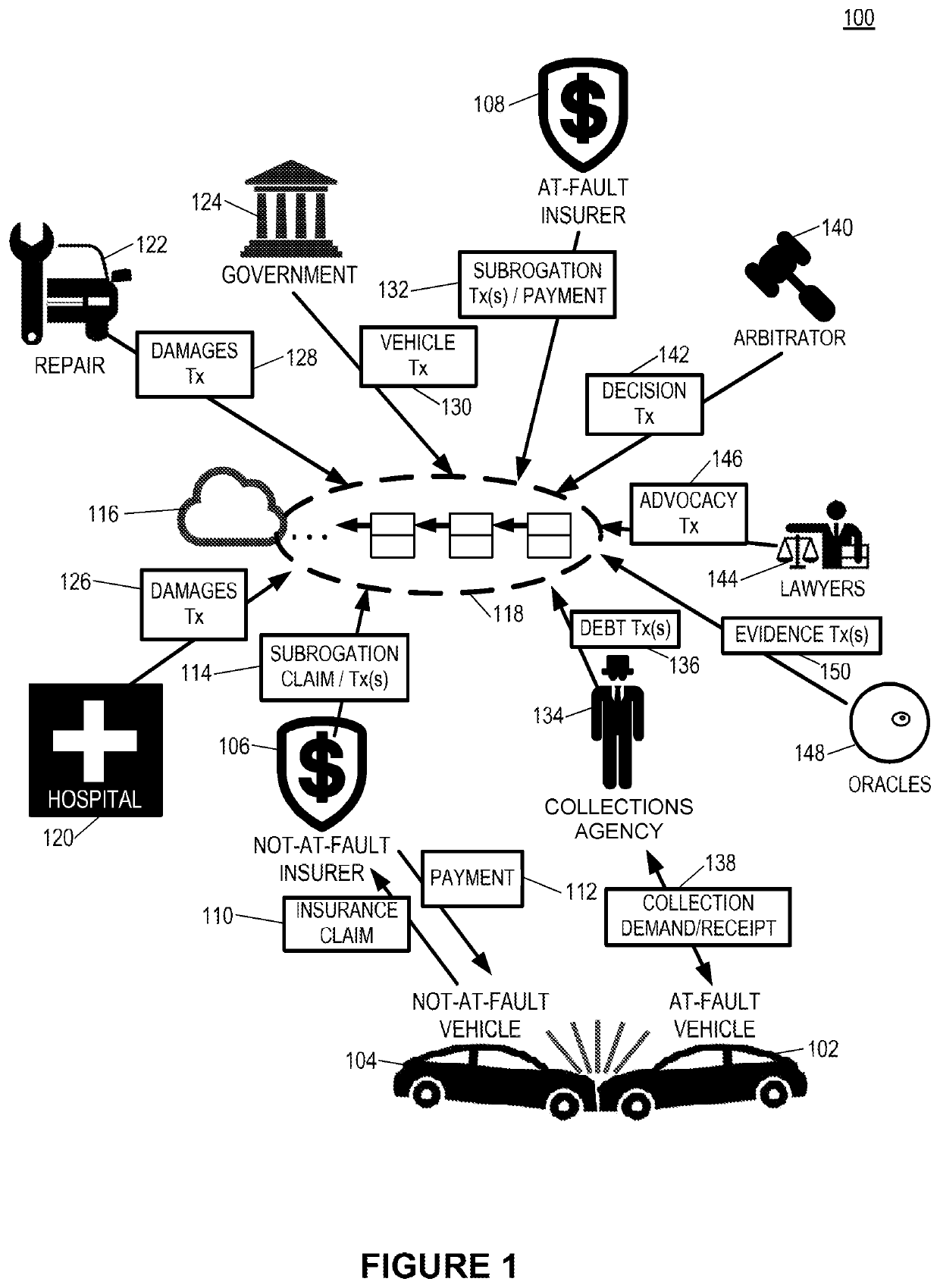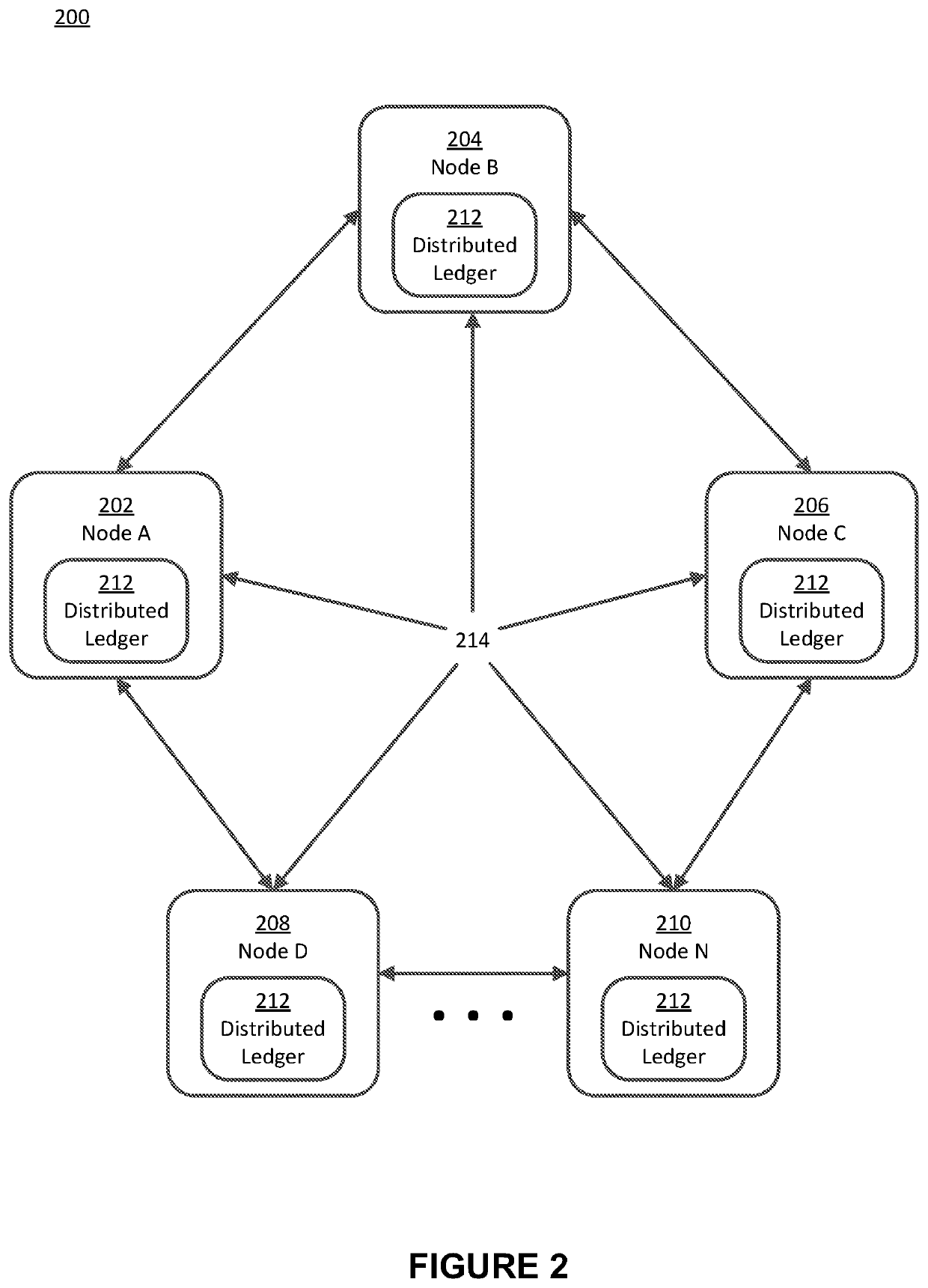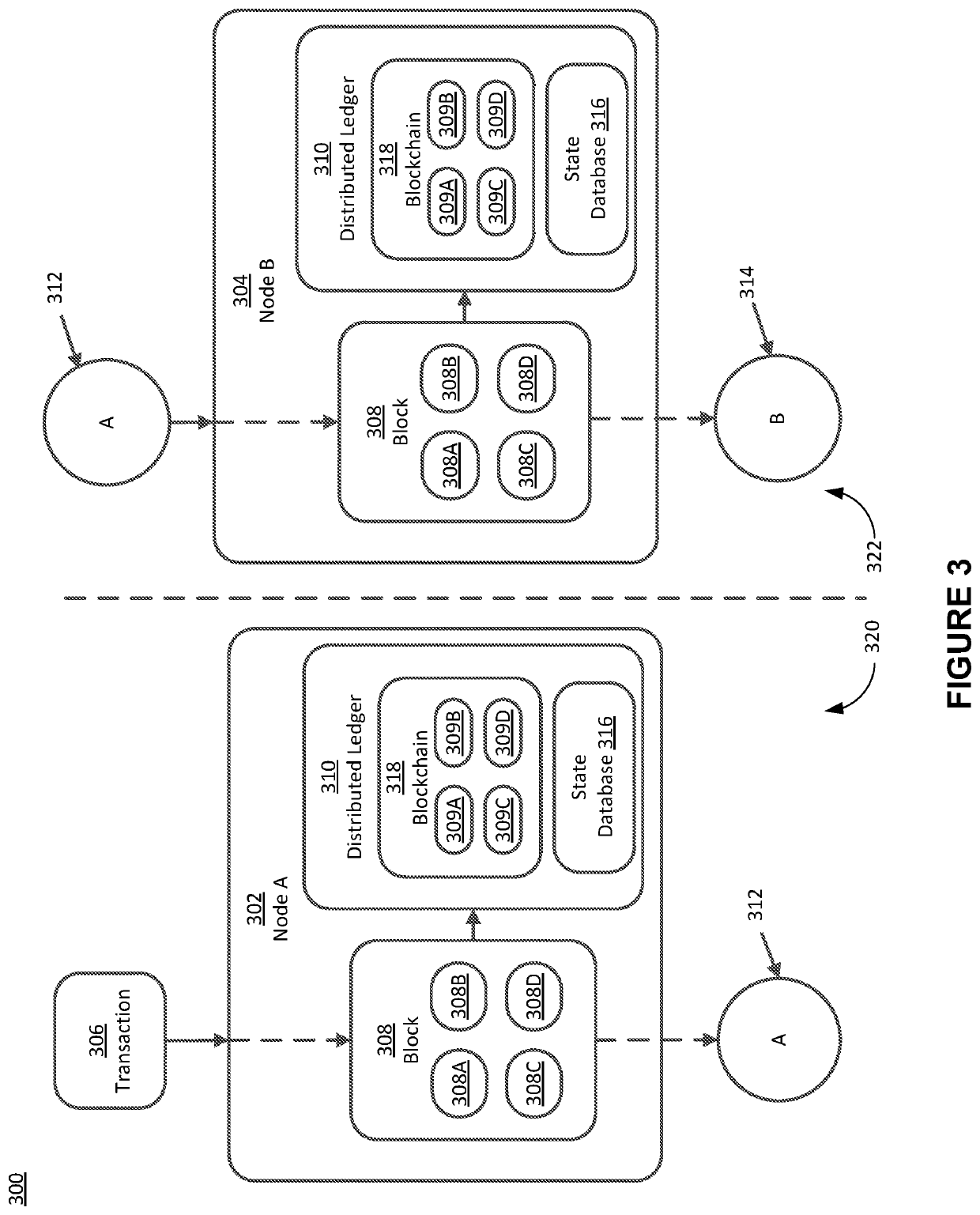Using a distributed ledger to determine fault in subrogation
- Summary
- Abstract
- Description
- Claims
- Application Information
AI Technical Summary
Benefits of technology
Problems solved by technology
Method used
Image
Examples
Embodiment Construction
[0029]Traditionally, businesses, customers, and central authorities, such as those involved in an insurance claim, have stored information related to transactions, and records of transactions, in databases or ledgers. Often these databases and ledgers are held by the participants and may be reconciled to achieve consensus as to the validity of the information stored therein. Alternatively, a central authority may be responsible for determining the validity of information stored in a database or a ledger, and functioning as an arbiter of consensus for interested parties, such as a recorder of deeds, an asset exchange, etc.
[0030]A blockchain (also referred to herein as a distributed ledger or a shared ledger) may be a way of achieving a distributed consensus on the validity or invalidity of information in the chain. In other words, the blockchain may provide a decentralized trust to participants and observers. As opposed to relying on a central authority, a blockchain may be a decentr...
PUM
 Login to View More
Login to View More Abstract
Description
Claims
Application Information
 Login to View More
Login to View More - R&D
- Intellectual Property
- Life Sciences
- Materials
- Tech Scout
- Unparalleled Data Quality
- Higher Quality Content
- 60% Fewer Hallucinations
Browse by: Latest US Patents, China's latest patents, Technical Efficacy Thesaurus, Application Domain, Technology Topic, Popular Technical Reports.
© 2025 PatSnap. All rights reserved.Legal|Privacy policy|Modern Slavery Act Transparency Statement|Sitemap|About US| Contact US: help@patsnap.com



